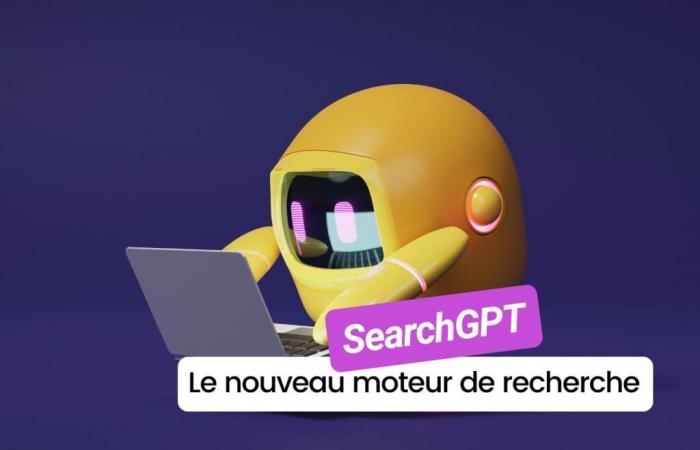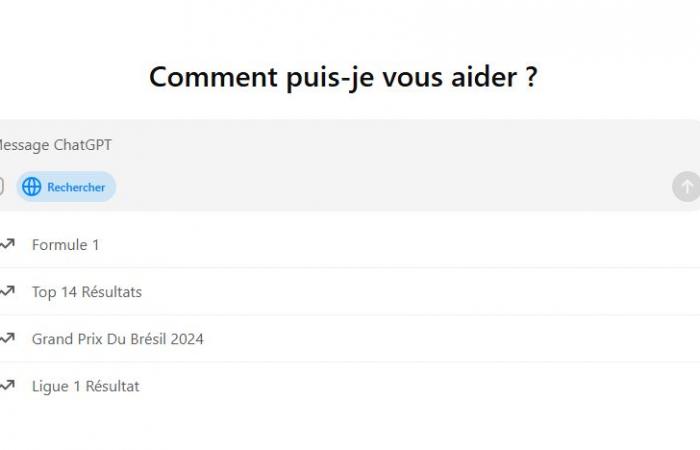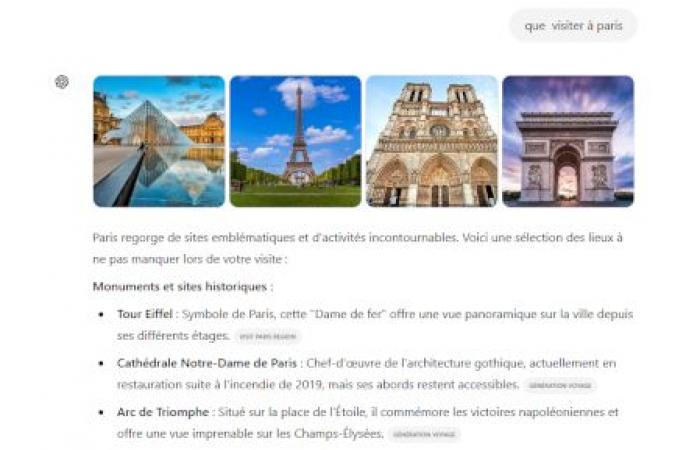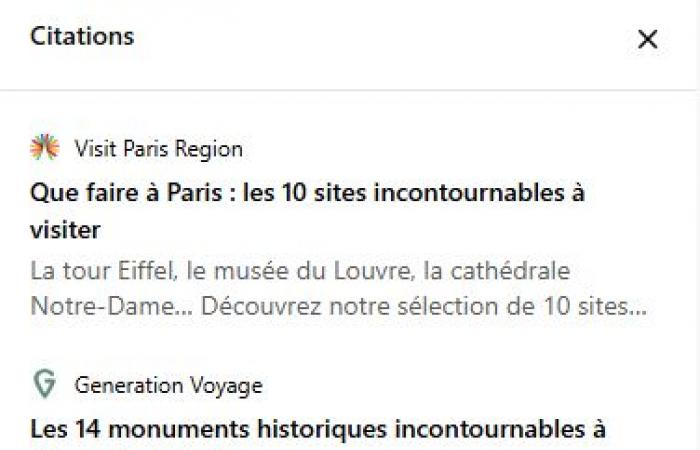With SearchGPT, ChatGPT evolves and now allows you to get up-to-date answers on a variety of topics: latest news, sports scores, stock prices, and much more. This technological leap brings OpenAI closer to big names like Google and Microsoft, while focusing on a refined experience, without advertising.
What to remember:
- ChatGPT can now access up-to-date information through direct web search.
- Answers are accompanied by references, allowing you to verify the information and access the source sites.
- The search can be started automatically or manually depending on your preferences.
- First for paying subscribers, SearchGPT will soon be available to everyone.
SearchGPT: when ChatGPT becomes a search engine
ChatGPT takes a big step forward with SearchGPT, a feature that allows it to go search for fresh information online. Until now, ChatGPT only had access to old data (apart from tools like WebPilot), but with SearchGPT, it becomes capable of answering your questions on current topics, whether for latest news or even the weather. Like a search engine!
Available first to paid subscribersthis new option will be extended to free users in the coming months. It integrates effortlessly into ChatGPT's regular interface, allowing you to ask your questions as usual, but this time, with answers connected to today's world.
SearchGPT's real-time search is based on cutting-edge technology that combines Microsoft Bing tools and a special ChatGPT model, GPT-4o. Depending on your question, SearchGPT can be triggered automatically or manually via an icon. For example, if you request recent information on a specific topic, ChatGPT will search online and display not only articles, but also graphics or even interactive mapsas needed.
Example with my traditional query to test AI summaries, “what to visit in Paris”:
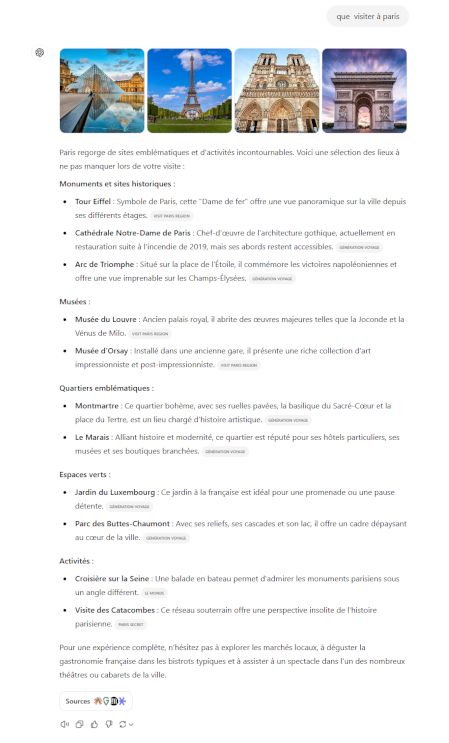

What's interesting is that each answer comes with a section of sources. This lists the links to the articles used, allowing you to click to find out more or simply to check the validity of the information given.
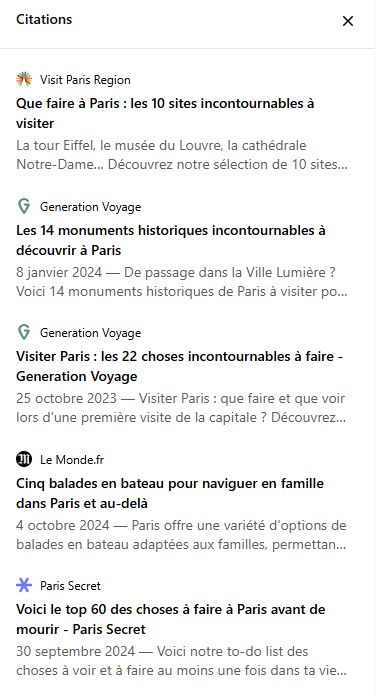

This transparency makes it possible to maintain control over the origin of the information, like what Google offers with AI Overviews or Bing with Copilot and Deep Search.
For free users, limited but still transparent access
Obviously, allowing ChatGPT to do real-time searches comes at a cost, and OpenAI does not intend to release this functionality unlimitedly to free users. They will certainly be able to use SearchGPT, but with frequency restrictions. Unlike Google, which offers advertising results, ChatGPT remains here without advertising. This means your searches are more direct, without distractions, and the emphasis is on the quality of the answer.
For paying users, access remains unlimited, providing more flexibility for those with more regular needs for real-time responses.
To guarantee the quality of the information offered, OpenAI has established partnerships with leading media groups such asAssociated Press ou le Financial Times. These partnerships offer privileged access to trusted content, while respecting the rights of publishers. In exchange, publishers benefit from increased visibility because every link to their articles is tracked, allowing them to measure traffic generated by SearchGPT.
These sources are particularly valuable in sensitive periods, such as the approaching US elections or international events, where precision information is more than necessary. This approach also makes it possible to limit AI “hallucinations”, these information errors often due to the absence of verifiable sources.
ChatGPT faces search giants
Avec SearchGPT, OpenAI clearly positions itself against the AI research tools of Google and Microsoftwhich also launched their real-time solutions (Google Gemini and Microsoft Copilot). But each player adopts its own approach: Google, for example, still has its very extensive index but offers sponsored results including in AI Overviews, while Microsoft relies on Deep Search and its precise answers to complex questions, based on the user's search intent.
ChatGPT, with SearchGPT, stands out by remaining without advertising and offering a more direct and refined experience. This difference could appeal to those looking for a quick response, without the commercial bias of advertising.
For SEO, a new horizon
The arrival of SearchGPT will also impact site owners and SEO professionals, who will have to adapt their strategies so that their content is also well referenced by this new platform. The source tracking option, integrated into site links, allows you to precisely measure the traffic generated by ChatGPT and see how the content is distributed.
Louis Bazile, SEO consultant and Abondance ambassador, indicates that there are obviously no big differences in criteria between Google and SearchGPT. The selection of results does not bring anything new to what we already know. Backlinks from authority sites seem to be the #1 criterion (who said backlinks are dead?) for choosing sources.

